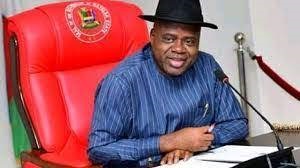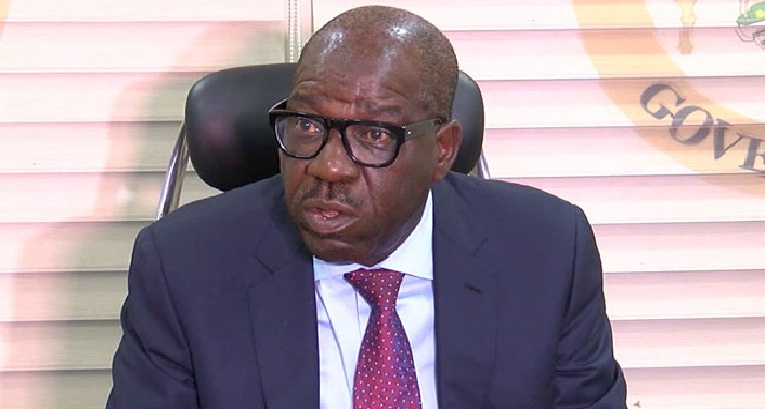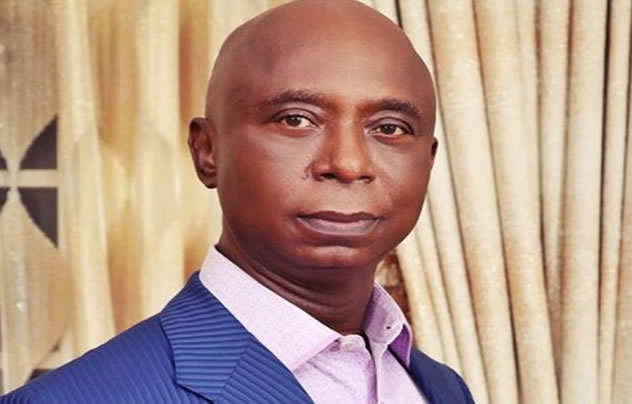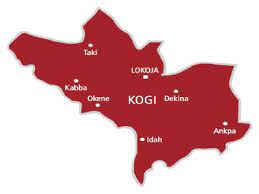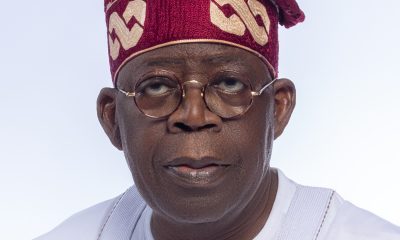OPINION
Igboho’s Cats, Kanu’s Interception and Buhari’s “Language”

By Reuben Abati
When a few weeks ago, President Muhammadu Buhari declared that those who seek to overwhelm and undermine the Nigerian state would soon be spoken to in the language that they will understand, this was immediately interpreted to serve as a signal of a declaration of war against the people of the South-East, because the President spoke in the context of war, as he referred to the civil war of 1967-70.
Subsequently, the President made it clear that the language of engagement would be communicated, not just in the South-East, but in every part of the country, including the North-West and North-East and elsewhere in the country where attempts are being made to sabotage the sovereignty of Nigeria, and the government’s responsibility to ensure the security and welfare of the people.Last week, Nigeria found itself in the grip of a security turmoil, and that promised confrontation with “language.” Nnamdi Kanu, leader of the Indigenous People of Biafra (IPOB), and founder of the Eastern Security Network (ESN), two organisations promoting separatism or secession, and committed to the actualisation of a Republic of Biafra to be carved out of Nigeria, was intercepted, re-arrested/extradited, and rendered Nicodemously, back to Nigerian soil. Nigerians got to know about the operation through a press conference by the Attorney General of the Federation/Minister of Justice, Abubakar Malami (SAN), who disclosed that Kanu was intercepted with the help of intelligence and security services. Kanu was re-arraigned in court on Tuesday, June 29.
The presiding Justice ordered that he should be remanded in the custody of the Department of State Services until July 26. Second incident: In Soka, Ibadan, Department of State Services (DSS) officials stormed the home of Chief Sunday Adeyemo, a.k.a, Sunday Igboho, the Yoruba co-promoter of the idea of an Oduduwa Nation, a modern-day defender of the Yoruba territory against the incursion of criminally-minded Fulani herdsmen into the South-West. The DSS has since declared Igboho a wanted man. He has reportedly said that nobody can intimidate him, because he has not committed any crime and that he is in his house despite the attack on him, his aides and his properties by State Security. Third incident: The brusque manner in which the Nigeria Police put an end to the Yoruba Nation rally at the Freedom Square, Ojota, Lagos, on Saturday, July 3. Not only did the Police block the people’s right to protest (which is condemnable), the life of a young lady was snuffed out, according to one account, by a stray bullet, but the police insist that she died from a knife-stab. She did not deserve to die.
These three incidents can be taken as an indication of “the language” that the President recently spoke about. It is the language of power, in form of an affirmation of the supremacy of the state. The only problem is the politics of it, the tone, nature and fall-outs and how the Nigerian government is doing the right thing in a wrong, untidy and controversial manner. What is right? And what is wrong? The Buhari administration has consistently insisted on the sovereignty of Nigeria, its indivisibility and indissolubility, in line with the Preamble of the 1999 Constitution and Section 2(1) thereof, in addition to its resolve to uphold the same principles and provisions. In the face of calls for secession, restructuring, and a referendum on the future of Nigeria and the state of the Union, government spokespersons have argued that whereas the Constitution can be amended, and the country can be restructured, as the people wish, this has to be done through the legislature, and not outside the extant constitutional framework. Those who insist that the 1999 Constitution is a “military invention” and not a “Peoples Constitution” have also been told that the latter, which they seek through a referendum, without the National Assembly, would amount to an unconstitutional proposition. There is no provision for a people’s referendum, or any contemplation of secession or separation by any part of the Federation known as Nigeria, in the 1999 Constitution.
This is the source of the difference between the separatist groups led by the likes of Chief Sunday Adeyemo and Nnamdi Kanu and other ethnic nationalists. The latter argue that Nigeria’s 1914 amalgamation has since expired and given that government is not prepared to re-negotiate the terms of the union, in the face of so much injustice, mis-governance and inequity in the land, it is better for those aggrieved groups within the federation to re-define their own destiny. Self-determination is a universally recognised right under Articles 1(2) and 55 of the United Nations Charter. The Nigerian government has been careful not to openly use that phrase, self-determination, but it rails against any effort to achieve that objective through the means of violence, or deliberate mobilisation to undermine Nigeria. “No responsible government will fold its arms” and allow non-state actors to overwhelm it is the common phrase we hear. Or something like the government’s responsibility to defend the rule of law or that the unity of Nigeria is non-negotiable. This is, of course, readily dismissed as hypocritical by those who accuse the Nigerian government of having no regard whatsoever for the rule of law, and hence no moral high ground to stand upon.
Sunday Igboho is committed to the actualisation of an Oduduwa Nation, which means the South-West of Nigeria pulling out of the Nigerian federation. He also defends the Yoruba territory. He has led rallies across the South-West, in Ibadan, Osogbo, Akure, Abeokuta, Ado-Ekiti, to sensitise and mobilise the people. The proposed Oduduwa Nation has its own anthem and a national flag. The latest rally was scheduled for Lagos, July 3. Two days earlier, the DSS attacked Igboho’s residence in Ibadan in the middle of the night. In the case of Nnamdi Kanu, he had been arrested by the Nigerian government in 2015, and taken to court on a nine-count charge of treasonable felony and other offences. IPOB, which he leads, was later proscribed and declared a terrorist group. In April 2017, Kanu was granted bail, under strict conditions. In September 2017, he jumped bail and became a fugitive from the law. He was declared wanted.
While on the run, Nnamdi Kanu and his associates sustained an attack on Nigeria through propaganda and other organised activities in the South-East. Without doubt, both Igboho and Kanu had become persons of interest to the Nigerian state. Igboho had been invited in the past by the police. There was also an unsuccessful attempt by state agents to kidnap him on the Lagos-Ibadan Expressway on one occasion. Igboho has remained undeterred. He has pursued his Yoruba Nationalism with gusto. It is not beyond the state to take an interest in him. As for Kanu, what the state has proven in his case is that whereas the will of the state may be slow, it will eventually prevail, and that nobody is above the laws of the land. The argument that Kanu is a British citizen offers neither a defence or immunity under the law. Dual nationality, which Nigerian laws recognise, does not grant anyone the right to or seek to overwhelm the Nigerian state and expect the affected state to look the other way.
What is wrong is how Nigeria has handled the two cases in question. Igboho’s house was attacked in the dead of the night, ostensibly without prior notice, in a Gestapo style reminiscent of those locust years of military dictatorship. The DSS claims that its team was attacked as it approached Igboho’s residence. So? In the absence of any prior notice, the DSS team could well have been regarded as intruders coming to do harm. Given his circumstances, any reasonable person would expect Igboho to have security arrangements at his home to keep intruders out. Did the DSS officials identify themselves before approaching the house, like the use of a public address system, asking Igboho to surrender himself? In trying to assert the might of the state, the DSS adopted extra-legal tactics. Two persons were killed, including an aide who was reportedly on a praying mat. Wives, including Igboho’s wife, were carted away, but released later. 13 persons ended up in custody. The vehicles in the compound were sprayed with bullets and damaged. This certainly cannot be a standard security agency operating procedure. DSS said it was acting on a tip off that Igboho was stockpiling arms in his home. The man says the few arms and ammunition that have been paraded do not belong to him. He is a traditionalist he insists, who deploys metaphysical powers. The DSS team was looking for arms, but they also ended up killing and arresting Igboho’s cats. Cats! Ologbo Iya agba. Ologbo Ijeun. Meow, Meow. Pussy Cat. How ridiculous. Did the cats also resist the invasion of Igboho’s residence?
The international community must be having a good laugh at Nigeria’s expense about this cruelty to animals and the ethno-theological assumption that it is possible for Sunday Igboho, a human being, to turn into a cat to escape arrest. The US SEAL team came all the way to Nigeria in October 2020, on a special security operation to rescue a 27-year-old Philip Walton, who had been kidnapped in Niger and brought to Nigeria. It was a precision operation, driven by science and professionalism. Nigerian security agents are always busy looking for fetish objects. Many of our own security agents will be better off joining the Vigilante, the Amotekun, the hunters’ guild or Ebube Agu. Igboho’s cats have not yet been paraded by the DSS. Those cats should also be allowed to have their day in court and their charges properly read out to them. I have no doubts that there will be more than enough lawyers who will take up their matter, pro bono, to make the simple argument that under Nigerian laws, an animal is not a juristic entity. Until that matter is determined, nothing must happen to those cats. Everything must be done to ensure that they do not end up in anybody’s pot of soup as a captured delicacy and spoil of war!
It is this same sloppiness that we have seen in the Kanu case. Ordinarily the matter should not have generated any controversy at all. A man runs away from the law. The law catches up with him. Simple. He should have his day in court. But the whole thing has been turned into something else because of the lack of clarity about the circumstances of his arrest. The Nigerian government has not even disclosed how and where he was arrested, the international agencies or governments that provided support, and how he was brought back into the country. The secrecy has now given room to needless speculation, confusion, and conspiracy theories. The Kenyan authorities have said, for example, that he was not arrested in Kenya. Persons close to him insist that not only was he arrested in Kenya, he was also tortured by Kenyan officials before he was handed over to the Nigerian authorities. By doing the right thing wrongly, the Nigerian government is gradually turning the narrative against itself, and turning both Igboho and Kanu into heroes among their supporters, and across ethnic constituencies in the South and the Middle Belt. We have now reached a point whereby Nnamdi Kanu’s supporters in the South-East are supporting and defending Sunday Igboho of the South-West and vice versa.
The emerging conversation is gradually focussing on due process, the right to self-determination and why in speaking language to power, the Nigerian state has not deemed it necessary to arrest anyone involved in attacks on the sovereignty of Nigeria in the Northern parts of the country. Questions: Can the point be confidently made that it is only in the South that non-state actors challenging the integrity of the state can be found? How about the Boko Haram and ISWAP in the North-East and the bandits in the North-West? Only yesterday, Boko Haram reportedly appointed a governor of its own to oversee parts of Borno State. Why is the government not going after whoever is the so-called Boko Haram governor? Will he appoint commissioners too and collect tax? Why are Boko Haram terrorists being approached for negotiation and offered chances of rehabilitation, unlike agitators in the South? These are the kind of questions being raised. No government that expects to be taken seriously can afford to lay itself open to such charges of double standards. Other commentators have gone further to insist that what needs to be addressed are the specific issues that continue to throw up non-state actors who question the value of the Nigerian state: these are issues of equity, fairness, justice, good governance and ensuring a collective sense of ownership and belongingness among Nigerians, not through vapid rhetoric but concrete actions. It is not an accident that these latter points are captured in spirit, in the communique issued at the conclusion of the meeting of the 17 Governors of Southern Nigeria held in Lagos on Monday, July 5.
The Federal Government of Nigeria needs to manage the crisis of confidence it faces. It needs to rebuild trust. It can start by ensuring that the right things are done in an open and just manner, that is fair to all parties concerned. And the security agencies must play their own part by always acting professionally. On Saturday in Lagos, a young lady who was not even part of the Yoruba Nation rally lost her life. In less than 24 hours, the Lagos Police Command told the public that no policeman fired any shot at all (something that was seen on television!), and that the victim did not die as a result of gunshot wound (did the police carry out an autopsy to determine the cause of death so fast?). State officials must learn to be truthful, otherwise whatever they do or say will be politicised and treated with doubt and suspicion.
Reuben Abati, a former presidential spokesperson, writes from Lagos.
OPINION
The Mokwa Tragedy
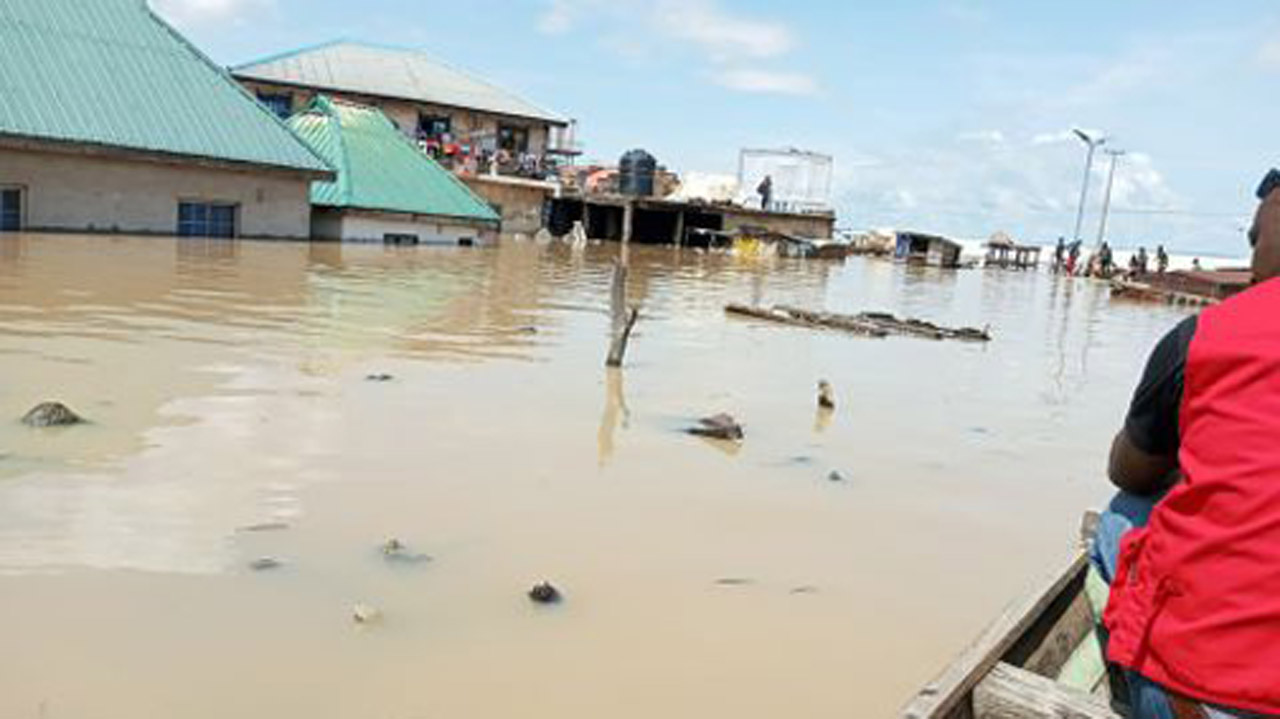
By Zayd Ibn Isah
There are calamities so devastating that in their aftermath, they ought to bring a nation to a halt, inspiring somber moments that should pierce through the noise of our politics, our tribal squabbles, and our digital distractions.These are the sort of tragedies that should unite people in a collective sense of grief, shock and loss.
The recent flood in Mokwa, Niger State, where raging waters swept away hundreds of men, women, and children, is one such tragedy. Unfortunately, this is the second major disaster to hit Niger State this year. Earlier, a fuel-laden tanker overturned, and instead of fleeing from the highly flammable spill, nearby residents rushed to have a fair share of the liquid black gold.The inevitable explosion that followed is estimated to have killed nearly a hundred people. Just as the nation was still reeling from that terrible tragedy, Mokwa was plunged into even greater sorrow. According to recent statistics reported by Daily Trust, over 200 lives have been lost in the recent flood, and around 500 people remain missing.Beyond lives lost, this particular flooding has displaced thousands, destroyed properties and placed many in severe financial ruin.Sadly, disasters like this are not new to us. From the Ogunpa flood in Ibadan in 1980 that claimed more than 200 lives, to the catastrophic floods of 2012 that affected 30 of Nigeria’s 36 states and displaced over two million people, to the recent floods in Borno, where waters from the Dam left destruction in their wake, a clearly predictable pattern seems to constantly emerge, especially when the rainy season comes.Nigeria has become painfully familiar with the sight of submerged communities, displaced families, and dreams washed away. What makes these disasters particularly heartbreaking is not just their frequency, but how preventable they often are.Yes, climate change is real. Rainfall patterns are shifting, and rivers are swelling beyond their historical bounds. But we must also confront an uncomfortable truth: we are not entirely innocent victims of nature’s fury.Across Nigeria, it is disturbingly common to see houses, shops, and even schools built on floodplains and natural waterways. Rivers are choked by illegal settlements, often constructed without proper approval or in blatant disregard of environmental laws.Yet, when government agencies move to demolish these structures, we cry foul. We accuse them of ethnic bias, political witch-hunts, or insensitivity. We shout “persecution,” when the real culprit is our collective refusal to listen to reason.Mokwa is a painful reminder of what happens when planning is ignored and nature is provoked. Urban planning in Nigeria is in crisis, not merely because government agencies fail to enforce regulations, but because we, the people, treat these rules with contempt.We bribe our way through approvals, circumvent safety protocols, and then feign surprise when disaster strikes. But floods don’t negotiate. They also certainly don’t recognise tribe, religion, or political affiliation. They simply follow the laws of nature. And if we insist on living in their path, the consequences, however tragic, are entirely avoidable.We must recognise that lives are at stake and that for survivors, the process of trying to rebuild or relocate while dealing with grief and loss, is often a difficult experience. This is why we must begin to change the way we talk about demolition and enforcement. The government is not your enemy when it clears structures built on waterways.On the contrary, such actions, when carried out transparently and justly, are lifesaving. We must stop romanticising illegal construction as a symbol of resilience. More often than not, it is a death sentence in disguise.That said, this is not the time to trade blame. It is the time to chart a new course. Flooding is not just a Nigerian problem. It is a global emergency. In recent months, Germany and Belgium were overwhelmed by deadly flash floods that claimed hundreds of lives. Brazil witnessed entire communities buried under mudslides triggered by torrential rains.In Bangladesh and India, millions were displaced after rivers burst their banks. Even the United States, despite its infrastructure, has seen cities like Houston and New York struggle to cope with overwhelming rainfall.In many of these countries, governments responded decisively; issuing timely evacuation orders, mobilizing rescue operations, and, crucially, relocating people from high-risk zones.In Japan and the Philippines, public education on disaster preparedness is rigorous and widely embraced. In the Netherlands, the government has invested heavily in flood defenses like levees, water plazas, and adaptive urban design.But here in Nigeria, even when relevant government agencies issue warnings, or evacuation is proposed, people resist. Sometimes it’s the deep emotional bond we have with our ancestral land. Other times, it’s the justified fear that relocation means abandonment, that once we leave, no one will remember us. And often, it’s simply that we have nowhere else to go.Yet we must acknowledge a timeless truth: prevention is better than cure. A stitch in time saves nine. As such, we need long-term solutions: proper drainage systems, enforced building codes, updated flood risk maps, and continuous public education on environmental responsibility.But beyond all that, we need a cultural shift, a collective understanding that human life is more valuable than temporary shelter, and that following the law is not a punishment, but a protection.The tragedy in Mokwa must not become just another headline. It must be a turning point. We should not just fall back on “thoughts and prayers”, lamentations, and vague promises to offer relief to victims. Rather, this should spur us all to insist on strict environmental and infrastructural maintenance, as well as effective measures for disaster preparedness, particularly when imminent disasters are as a result of climate change.We need to plan the development of our cities better, especially when it comes to constructing and maintaining proper drainage channels, managing waste disposal and ensuring that waterways are not impeded by illegal structures. We also need to be united in ensuring this becomes a national moment of reckoning, especially one where we begin to rethink how we live with our environment, and with one another.If we continue to build on water, water will continue to subject us to the terrifying laws of nature.Zayd Ibn Isah can be reached at lawcadet1@gmail.comOPINION
Nigeria’s Security: Between Self-defence and Community Policing

By Mukhtar Ya’u Madobi
As Nigeria continues to battle worsening security challenges — ranging from banditry and kidnapping to terrorism, insurgency, and communal violence — citizens across the country are increasingly embracing grassroots security measures and calls for self-defence.
These challenges are not confined to the North. In the South, militancy, piracy, secessionist agitations, cultism, and cybercrimes further complicate the nation’s fragile security landscape. Speaking at the maiden annual lecture of the National Association of the Institute for Security Studies, themed “Mobilising Stakeholders to Curb Insecurity in Nigeria: A Practical Approach,” the Director-General of the State Security Service (SSS), Oluwatosin Ajayi, stressed the need for communities to take greater responsibility for their own security. He cited examples where local populations had historically repelled insurgents and urged communities to work closely with security agencies to counter threats such as terrorism, banditry, and kidnapping.Ajayi noted that it is unrealistic to expect security agencies to protect every citizen across Nigeria’s expansive territory. He argued that communities must serve as the first line of defence, and that empowering them would enhance grassroots resilience, while reducing over-reliance on federal forces.Echoing this position, former Chief of Defence Staff, General TY Danjuma (rtd), recently renewed his longstanding call for Nigerians to rise in self-defence against non-state actors. Reacting to fresh waves of violence in Plateau, Benue, and other states, Danjuma insisted that citizens can no longer afford to remain passive while bandits and terrorists wreak havoc.“The warning I gave years ago remains valid. Nigerians must rise and defend themselves. The government alone cannot protect us,” he said.This message of self-defence has increasingly resonated across vulnerable communities, reflecting the harsh reality of an overstretched security system that leaves millions exposed. The roots of the crisis lie in decades of state neglect, porous borders, weak intelligence systems, and economic exclusion.In the North-West, states such as Zamfara, Katsina, and Kaduna are under the siege of bandits, who raid villages, rustle livestock, extort ransoms, and impose levies. In the North-Central region, particularly Plateau and Benue states, farmer-herder conflicts have morphed into sustained ethno-religious violence. The South-East contends with secessionist violence linked to IPOB/ESN elements, who often target security infrastructure. Meanwhile, the South-West and South-South struggle with cultism, ritual killings, and piracy.One chilling episode was the abduction of more than 280 schoolchildren in Kuriga, Kaduna State, in March 2024. Although the children were eventually rescued, the incident laid bare the glaring weaknesses in Nigeria’s security infrastructure and left the community traumatised.Faced with these realities, several states have begun taking their destinies into their hands. In April, the Kano State Government passed the Security Neighbourhood Watch Law to create a legal framework for community-led security efforts. Katsina has trained local vigilantes through its Community Watch Corps, while in Zamfara, Governor Dauda Lawal launched the Community Protection Guards (CPG), a controversial but welcomed initiative in rural areas long neglected by formal forces.In the North-East, the Civilian Joint Task Force (CJTF) continues to support military efforts against Boko Haram, leveraging local knowledge and swift response capabilities. The Amotekun Corps in the South-West, headquartered in Ondo State, has addressed critical security gaps in the region, earning both criticism and praise. Similarly, the South-East’s Ebube Agu and joint regional outfits in the South-South emerged from the growing public distrust in the federal government’s ability to guarantee safety.However, the growing wave of self-defence and vigilante initiatives raises ethical, legal, and practical concerns. Nigeria’s Firearms Act prohibits civilians from bearing arms without a licence. Without a clear regulatory framework, arming civilians risks escalating violence, enabling political thuggery, and creating new security threats under the guise of protection.These dangers are not hypothetical. In Edo State’s Uromi community, vigilantes wrongfully accused 16 Northern hunters of being kidnappers and burnt them alive. In July 2022, Ebube Agu operatives reportedly killed 14 unarmed wedding guests in Otulu, Imo State. Other vigilante groups in the region have been implicated in extrajudicial killings and abuses. A Daily Trust investigation in April revealed that vigilante groups killed at least 68 people in three months, with many more subjected to torture, harassment, or unlawful detention.These developments have prompted the House of Representatives Committee on Army to call for the regulation, oversight, and training of vigilante groups. The Uromi killings, in particular, triggered national outrage and renewed demands for accountability.Responding to these concerns, Major General Chris Olukolade (rtd), chairman of the Centre for Crisis Communication, acknowledged General Danjuma’s fears but cautioned against unregulated civilian self-defence. He warned that unless communities are engaged within a structured and legal framework, insecurity may only worsen. According to him, civilians should not be armed unless integrated into formal security systems with clear guidelines.Against this backdrop, community policing has emerged as a more sustainable and coordinated alternative. Under the leadership of the Inspector General of Police, pilot schemes have been launched across several states. These involve recruiting and training locals for surveillance, intelligence gathering, and early intervention, followed by their integration into existing police structures.Lagos, Ekiti, and Kano States have all recorded notable progress. In Kano, the Hisbah Corps, initially tasked with moral enforcement, has been reoriented to contribute to broader urban security. In Lagos, the Neighbourhood Safety Corps plays a vital role in gathering intelligence and issuing early warnings.Nonetheless, community policing faces serious limitations. Funding shortfalls, inter-agency rivalries, and a lack of coordination continue to undermine its effectiveness. A major stumbling block is the constitutional contradiction where state governors are designated as chief security officers but lack control over federal police operations within their jurisdictions.Solving Nigeria’s security crisis requires a comprehensive strategy that addresses institutional, legal, and socio-economic issues. First, the constitution must be amended to empower state and community policing structures with defined jurisdictions and robust oversight. Second, vigilante and self-defence groups must be trained, regulated, and integrated into the formal security architecture to avoid becoming a threat themselves. Third, intelligence gathering should begin at the grassroots, where community members are often the first to notice early warning signs. Fourth, addressing the root causes of insecurity — such as unemployment, poverty, and youth disenfranchisement — through investments in education, job creation, and social empowerment is essential. Lastly, traditional and religious leaders must be given formal roles in mediation, peacebuilding, and community-based conflict resolution, given their influence and trust within local populations.Nigeria’s security challenges demand more than rhetoric and reactive responses. While the instinct to defend oneself is natural in the face of government failure, unregulated self-defence is a risky and unsustainable path. The lasting solution lies in creating a decentralised, community-driven security model rooted in legality, ethics, and shared responsibility.As communities across the country face mounting threats, the question is no longer whether to adopt localised security strategies — but how best to coordinate, empower, and regulate them before chaos becomes the norm.Mukhtar Ya’u Madobi is a research fellow at the Centre for Crisis Communication. He can be reached via ymukhtar944@gmail.com.
OPINION
This Trial of Oloyede
By Tunde Akanni
It’s been traumatic for my entire family since that video started making the rounds. I sneaked a slight view… It’s our trial. It’s my trial. Oloyede is genuine. He is most sincere. He is modestly so, as well. For us, however, Allah knows best.
I was with a trader in the afternoon of what I considered a dark Wednesday, the 14th of May. “Se bi won ni JAMB o get mo bayi…”. I had to cut in immediately. Which JAMB? “Madam, that’s one person I will vouch, and vouch for…zero tolerance for corruption. Absolutely responsible with a high level of consciousness for the good of others. If certain things went wrong at JAMB, I agree it’s his responsibility to carry all pleasant and other burdens but just know that the bad side of the operations may as well be sabotage. I have absolute trust in that man. Ask my own colleagues about me, but Oloyede is my own hero, somebody I have known for more than 40 years…”This is by no means a reductionist disposition to the tragedy induced by the so-called computer glitch. May the Almighty God in His infinite mercy console the parents of the candidate reported to have committed suicide. May God strengthen them to survive this gloomy phase of their lives and sustain them to reap bountiful compensation that will endure in their lives. It’s hard, so hard to pull tragedies of this magnitude. I personally feel for these parents.The said computer glitch, may we never fall victim to it. Those who work for big organisations requiring a large layout of ICT operations know what I’m talking about. Rather than being ‘solutional’, IT facilities can be unimaginably problematic sometimes, yet indispensable in this civilisational dispensation. This is not doubting deliberate sabotage, as may have happened in the case of JAMB. I’ve been part of Oloyede’s JAMB journey to attest to his commitment to offer his best for the otherwise sinking board.Far from being cosmetically exhibitionist, the Oloyede-led JAMB team, led by the Education minister, Tunji Alausa, went round the critical facilities of JAMB during the just concluded examination. Alausa saw, firsthand, like never before elsewhere in this country, how far JAMB had gone in its strive for transparency and the real-time monitoring of the conduct of examinations nationwide. Alausa, beyond being in awe, sought to make the JAMB effect spread immediately to other examination bodies.No be dem say, same day, the WAEC team came to JAMB and made it into the situation room, which was my own duty post. The NECO team followed suit afterwards, both duly led around by the sturdy lead IT consultant who’s been reliably there from Oloyede’s assumption of duty, Damilola Bamiro. Far richer, given that they charge more for their exams, the duo of WAEC and NECO were suddenly mandated to understudy the examination sector leader in Africa that JAMB has become over time.The staff of both WAEC and NECO suddenly had to undertake a professional excursion led through all the real time monitoring screens and other digital facilities. It was obvious they marvelled at what they saw, revealing a functional leader-subordinate synergy manifest with trendy output that the world can see and learn from.But that may even seem like the tip of the iceberg of the output of the hard work and commitment of the nation’s foremost icon of integrity in public service. A series of far more seemingly serious strides had been accomplished by Oloyede at JAMB. As a focused scholar, he keeps ensuring that every bit of the experience of the Board is treasured as worthy data to guide future actions and even subjects for further research.Not even the agencies dedicated to emergency matters in Nigeria could have been as prompt as the Oloyede management on this ugly glitch saga. Once the complainants began ventilating into the public space, JAMB rose to the challenge without any predictably traditional arrogant stance of government is always right. I was aware that a particularly strident public critic and a former students’ leader at Obafemi Awolowo University, Adeola Soetan commended the spokesperson for JAMB for the excellent handling of public complaints.Promptly, an independent team of investigators was set up to unravel the mystery leading to the rather depressing situation that now confronts us. The team, drawn from assorted but technically relevant constituencies, has found out that no fewer than 165 centres of over 800 examination centres nationwide were affected.Obviously well prepared for whatever the outcome may turn out to be, he braced up to the challenge to embrace the surrender value to tell it to the world as it is. This trial is for all of us who believe and trust Oloyede. I am in this group. So much so that his public cry infected me…It was a patriot’s cry for his beloved country. Like me, a former Law don at LASU, Dr Kilani wasn’t any less affected as demonstrated in a quick note to me: “I write to associate myself with the pain, sorrow and emotion of our own Professor Oloyede. I could not hold my tears seeing him cry. May Almighty Allah see him through. May we all not be put to shame…”But then came a soothing message from Gbade Osunsoko, my cousin: “…He will come out of this much stronger because Nigerians will trust him far better than a number of our leaders.. A man that makes mistakes happens under him and takes responsibility – it’s a big deal in Nigeria.”With Oloyede, young Nigerians with challenges regarding sight are no longer left to moan their fate endlessly, with adequate provision for their inclusion in the UTME. How many of our public facilities are this inclusion conscious as stipulated by SDGs? How come a legacy built through almost a decade at the very best cost ever possible will be made to crumble when the game changer leader remains ever modest? JAMB has steadily risen through thick and thin to accomplish its tasks to the admiration of stakeholders, nationally and internationally, under Oloyede. Both NNPC and the Nigeria Police, being beneficiaries, can attest to the current competence of JAMB. How many other numerous stakeholders nationwide never deemed to have any relevance to JAMB before Oloyede but have since become critical, if not indispensable players?But why does this sudden saddening encounter threaten our joy of service without blemish? Why this unforeseen truncation of a good story, so intentional, coming from Africa? Whodunnit? Surely the truth shall come out for the world to perceive and assess and get to appreciate the efforts and the quantum of commitment appropriated to the JAMB excellence project driven by Oloyede.One cannot but be deeply concerned. Before the very eyes of a few of us carefully selected to give support from our respective professional perspectives from the very beginning, Professor Oloyede’s concern for genuine growth and development was real. It is still real and increasingly so, as a matter of fact. Indeed, inimitable. It shall be well.Tunde Akanni is a professor of Journalism and Development Communications at the Lagos State University, LASU. Follow him on X:@AkintundeAkanni






